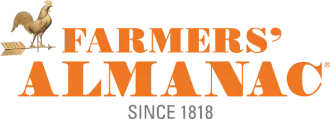Are You Guilty Of Using These Phrases Incorrectly?
Here's a list of common phrases that are commonly used and sometimes used incorrectly. It's sure to whet—rather than wet—your appetite! See the list.

Here’s an article designed to whet your appetite—rather than wet your appetite (this is one many people get wrong! See the explanation, below). We’re about to open a language can of worms here: Below are some common phrases that many people are using incorrectly. Are you guilty of any of these faulty phrases?
A Can of Worms?
Are you waiting with baited breath for more information? Well, it’s actually bated breath—bated being the shortened form of abated, meaning “diminished.”
All Tied Up
May the lessons here strike a responsive cord in your mind. Oops, it’s strike a responsive chord. The figurative comparison here is musical. A chord is a set of tones, a cord just a piece of string.
Easy As Pie
Read carefully, and you’ll get your just deserts, not your just desserts. Deserts, in this case, are not pie or pudding—they refer to what you justly deserve.
Are You Saying It Wrong?
Many faulty phrases involve mispronunciations that mangle the sounds of the words when we speak them:
A Biting Remark
May this small instruction manual can help nip your mistakes in the butt. Ack! Employing an agricultural metaphor, the intended statement should be to nip your mistakes in the bud before they can grow and fully flower.
Bring It On Home
Do you hone in on an issue? No, sorry, that should be home in on. To hone means “to sharpen,” as in, “to hone a knife” or “to hone a skill.” To home in on means “to move closer to a target.” Think “homing pigeon”!
A Rock and a Hard Place
For all intensive purposes you really shouldn’t take for granite any phrase, right? Actually, these pervasive expressions in their correct form are for all intents and purposes and take for granted. They make more sense that way, don’t they?
Dog Days
It’s a doggy dog world out there, so stop mispronouncing this common expression! The competitiveness of human life makes it a dog-eat-dog world.
Like a Wrecking Ball
Such boo-boos wreck havoc on your language. That version also somewhat makes sense, but the conventional form is to wreak havoc. Havoc means “chaos, “and wreak here means “to cause the infliction of.” And it’s not “reek” either: the only creatures that can reek havoc are skunks.
Split Hairs
When words collide, some competing versions come within a hare’s breath or hare’s breadth or hair’s breath or hair’s breadth of each other. The only correct way to write and read this one is hair’s breadth, the thickness of single human hair. The expression has nothing to do with rabbits or breathing. I hope that jibes (not jives), with your understanding of the idiom.
Call & Answer
Master these distinctions, and they will serve you at your beckon call. Not quite. They will serve you at your beck and call—beck meaning “when you gesture at them,” and call meaning, “when you command them.”
All Turned Around
The last category of fractured, faulty phrases is those that lack logic. For example, I’m hoping that, as a result of my instruction, you’ll make a 360-degree turn in your verbal skills. In reality, that’s the last thing I want to happen because a 360-degree turn puts you right back where you started. I’m hoping to inspire you to make a 180-degree turn in your speaking.
Be Careful
Some folks could care less about biting their mother tongue. But if they could care less, they must care to some extent. So, don’t be careless with care less. Use couldn’t care less to indicate that you don’t care even a smidge.
Why is it “Whet” and Not “Wet”?
The spelling of the phrase above is, indeed, whet because the metaphor here compares the sharpening (whetting) of a knife to the sharpening of one’s hunger).

Richard Lederer
Richard Lederer is a writer, speaker, and teacher best known for his books on word play and the English language and is a regular contributor to the Farmers' Almanac. You can visit his web site at Verbivore.






Every time I have heard “just deserts,” it was pronounced as “desserts.” However, the emphasis should be on the first syllable. Do I understand that correctly?
Kat, you have to admit, if you’ve never heard of diatomaceous earth before, it’s rather hard to spell. Actually I’ve known about it for years, and I still had to copy and paste it, because I would have never been able to spell it!
Deanna,
There, their and they’re, and too, two and to are a question of grammar not spelling, as that they are homophones. I completely agree on loose and lose! They don’t even sound the same, if people are saying them properly. On ‘that’, I’m horribly guilty of overusing it!!
Charlotte and Susan,
I use ‘irregardless’ just to see if anyone will call me on it, but only on unimportant things, like Facebook.
I don’t think we are losing our language, there are just as many people using it correctly as there are that don’t. Though I may not be in the best place to judge, since “redneck” is the language I hear most often. That’s what happens in the middle of Missouri though.
I believe the problem is that people arent listening or don’t quite catch what is being said. I told a friend about diatomaceous earth so she looked it up on line. Then she told me that she could not find “diatenacious” earth anywhere on the internet. When I told her about it she either was not listening as closely as she thought or she mis-heard me.
We aren’t losing our language. There will always be people who hear it wrong/say it wrong.
The expression that irritates me is when some one says ” they were conversating with someone ” where did that come from ? The English language is indeed being lost.
I am an old(er) fart who learned correct English a long time ago.
.
What I learned from this article is the fact that we are losing our language.
I’ve always wondered about a lot of sayings, like “It’s no skin off my teeth” !!!
HI Joyce Webb, take a look here, this may answer your question! https://www.phrases.org.uk/meanings/83000.html
Charlotte, good one! Not only silly, but not even a word!
I understand many people don’t know how to spell so I don’t find it irritating when they misuse their, there, they’re, or two, too, to, etc… But for whatever reason misusing lose and loose seems idiotic to me. They are easily understandable in their meanings. The other thing which always jumps out at me is the word “that”. It is a filler word and 99% of the time is not necessary in a sentence. An example is in the above article- the author says “Use couldn’t care less to indicate that you don’t care even a smidge.” The word “that” is not needed. The sentence stands on its own as “Use couldn’t care less to indicate you don’t care even a smidge”. I find the word irksome.
One that totally is silly is “irregardless” vs regardless
My pet peeve is the use of the word “gift” (and variations thereof) in place of “give”. No, you were not “gifted”…..you were GIVEN something.
I was corrected by an English teacher for, according to her, miss using an idiom. Turned out, I was correct. I don’t think She has forgiven me yet.